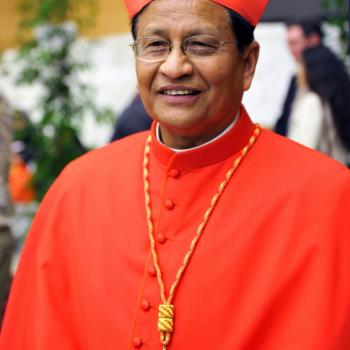
It was 1980 and El Salvador was in crisis. Conflict was raging between the military government and paramilitary groups (a conflict that would escalate into the twelve-year Salvadoran Civil War). The rural poor were suffering oppression at the hands of wealthy landowners while death squads patrolled the country. Each day innocent people were being tortured and raped and killed.
Whenever I read about this period – or talk with those surviving – I am dumbfounded. I cannot comprehend how Salvadorans managed to carry on any semblance of normal life amid such violence. Even more difficult to imagine is the courage of those who dared to speak their opposition. Each Sunday, Archbishop Oscar Romero would broadcast a radio sermon denouncing the human rights violations of the government: “In the name of God I implore you, I beg you. I order you: stop the repression!” he once famously cried. His plea was not heeded. On 24 March 1980, Romero was shot while saying Mass in a small chapel. For twelve further years, his country would be razed by war.
I first learned of Romero when my eighth grade religion teacher showed us the 1989 film based on his life. I was inspired by this man who, at the age of sixty and after a lifetime of honourable (but quiet) service to the church, became a champion of the poor and oppressed. Throughout my childhood, I had loved my Catholic faith for its spirituality and its emphasis on community but, after seeing Romero, I learned that my Church was also meant to be a refuge for the poor and the oppressed. I developed an interest in Latin America that remains to this day. I learned that charity and good works, though integral to Christian living, were not enough; that I was called to act against oppression and transform the world in which I live.
Romero is often portrayed as a bookish traditionalist whose appointment as Archbishop met the chagrin of the progressive wing of the Salvadoran Church. When his friend, the Jesuit Rutilio Grande, informed Romero of peasant farmers being oppressed in the Aguilares region of the country, Romero stated that priests should not meddle in politics. His position changed after the assassination of Grande. Deeply affected by the loss of this friend, Romero felt called to take up the cause of these peasants: “When I looked at Rutilio lying there dead I thought If they have killed him for doing what he did, then I too have to walk the same path”. In that moment of conversion, Romero made the cause of these peasants his own.
While I generally accept this telling, I am somewhat bothered by the sharp contrast that is drawn between the before and after of his conversion. I grant that it is difficult to believe that someone who studied in an Italy run by fascists, and who wrote a doctoral dissertation on ascetical theology, and who edited a conservative newspaper, would champion social justice and emerge as an emblem of the Latin American left.
However, the conversion of Romero becomes much less surprising when considering an aspect of his daily life which remained constant. Committed to a daily examination of conscience and of constant self-offering to Christ, the deeply pious Romero strove to live out his faith in the best way he knew. I am convinced that his deep spirituality guided him whether writing his doctoral thesis or visiting the poor in Aguilares; when establishing apostolic committees as a parish priest and when denouncing the crimes of his government. I do not believe that his conversion, in 1977, surrounded his changing political thought. Instead it was the culmination of his lifelong commitment to the love of Jesus Christ.
The ministry of Romero shared much with the ministry of Jesus. Like Jesus, Romero embarked upon an intense ministry that lasted three years. Like Jesus, Romero identified with the plight of the marginalized and he dared to speak out against the state. Like Jesus, Romero sparked a movement that has continued to this day. He is now recognized by millions – Christians and non-Christians alike – as a tireless seeker of peace.
Whenever I revisit Romero, I am struck by how ordinary he was. Undoubtedly a man of talent, Romero was nonetheless an ordinary man striving to live out his principles as best he knew. What distinguishes him from many, perhaps, is that when he witnessed the crisis unfolding in his country, he did not succumb to the temptation to be a bystander. He did not shake his head in despair. Instead he listened to his conscience. Bravely he dared to walk a path which, though difficult, was the one he knew to be right.
While the Salvadoran Civil War may have ended, death squads and torture and war are not only stories of the past. They are featured not only in headline-making places such as the Ukraine or Syria but also in the streets of North American cities. There poverty and inequality of opportunity continue to cause suffering for millions. I believe that no matter where a person is in his or her life, and no matter his or her location or profession, each can draw inspiration from Oscar Romero. Whether resisting large-scale global injustices by joining activist movements or working for greater justice in the local community … whether travelling to conflict-ridden areas or seeking to resolve conflict within the home, each is presented with the same call that Romero answered.
Each is called to become a messenger of peace.
Jeannine M. Pitas
Jeannine Pitas is a Ph.D. candidate at University of Toronto’s Centre for Comparative Literature. Jeannine is completing her dissertation on Latin American women poets of resistance. We, at Vox Nova, are grateful that she would share this post with our readers.












